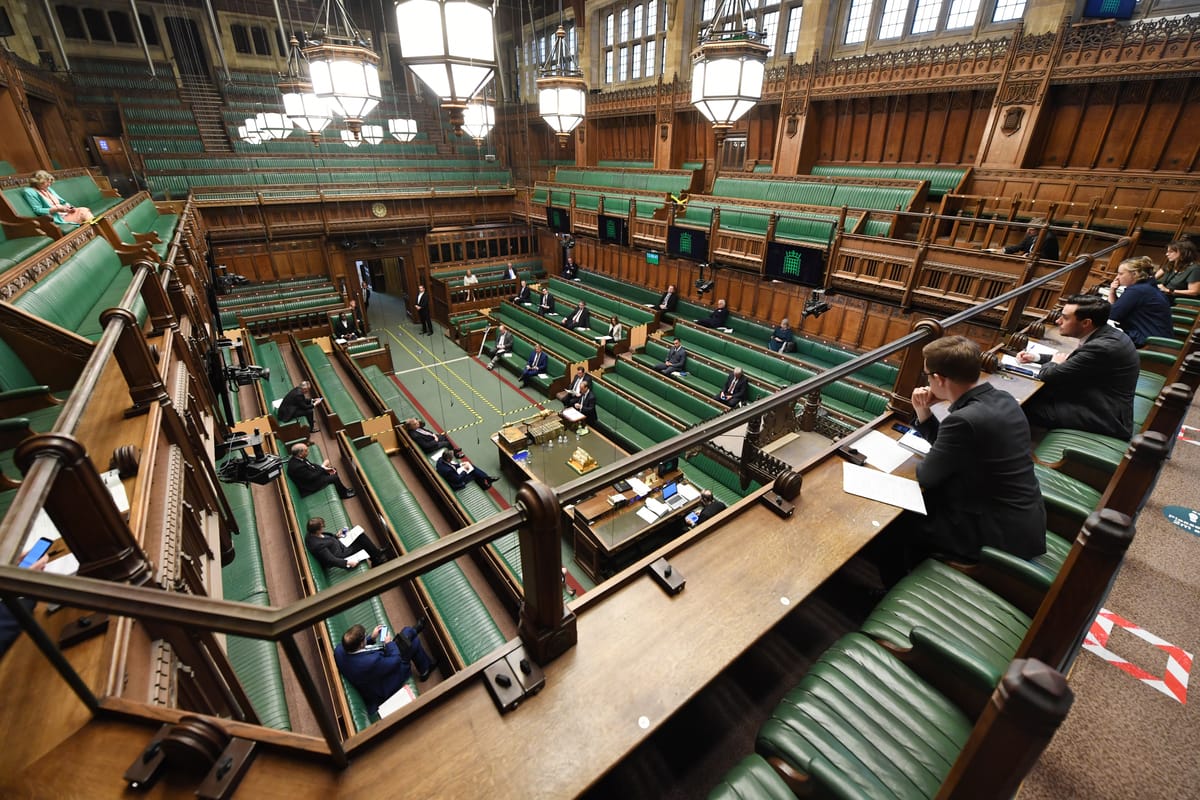Covert Human Intelligence Sources Bill: Not a licence to kill, but worse
Simply put, this Bill will allow certain authorities’ intelligence gatherers (i.e. undercover police and informants) to conduct criminal activities.

On 24 September, the government introduced the Covert Human Intelligence Sources (Criminal Conduct) Bill to the House of Commons. Simply put, this Bill will allow certain authorities’ intelligence gatherers (“covert human intelligence sources”, i.e. undercover police and informants) to conduct criminal activities.
Unsurprisingly this stirred up a huge controversy, with the press dubbing it “licence to kill”. MP Zarah Sultana opposed the Bill as it “doesn’t prohibit torture, murder or sexual violence”. These claims are inaccurate. All public authorities are bound by Human Rights Act 1998 to act in under the European Convention on Human Rights (“ECHR”). Article 3 of ECHR prohibits torture and inhuman or degrading treatment. Unlike most other Rights protected by ECHR which are qualified, prohibition of torture is absolute. There is no circumstance that could justify an interference against Article 3 right. As such, this Bill can never be used as a defence in court against torture or sexual violence. Regarding murder, Article 2 allows deprivation of life only under 3 circumstances. All of which are powers authorities already have and this Bill grants nothing additional.
But none of these safeguards derives from the merits of the Bill itself; they were enshrined into human right legislations and UK’s international treaty obligations. Instead, this Bill opens up the bucket of worms that allows for routine transgressions of the law by the authorities and frustrates options of remediation against abuse of power, things which will quickly erode people’s confidence in the state.
The most significant issue of this Bill is the grant of criminal immunity to an exceptionally wide range of authorities. The Bill applies not just to MI5, MI6 and GCHQ – ones we expect to conduct crimes, but also any police force. The 45 territorial police forces are not centrally managed and have a widely varying level of competence and professionalism. The Bill allows all to independently issue “criminal conduct authorisations” without external oversights.
The government claims, in their Explanatory Notes to the Bill, that authorising criminal activities “is not a new activity” and the Bill “puts existing practice on a clear and consistent statutory footing”. This is blatantly misleading. Ordinary police forces have always operated under the assumption that they cannot authorise anyone to break the law. If there is a frequent need for ordinary police forces’ undercover officers and informants to commit certain crimes, then the Parliament should grant them power specific and limited to those particular crimes they need to commit, rather than a blank cheque on all crimes. One example of this was the Sexual Offences Act 2003, which explicitly granted members of MI5 and GCHQ immunity for making indecent (pseudo-)photographs of children – not all police forces, and not even the MI6, as such immunity would not be necessary or proportionate for their functions. This implies the Parliament was operating under the understanding that it is not lawful for public authorities to commit crimes as they saw necessary, but only when so permitted by legislation; otherwise the explicit exemption would not have been necessary.
This type of over-delegation of power has its precedence and has led to a plethora of abuse. The Regulation of Investigatory Powers Act 2000 (“RIPA”), which this Bill amends, provides legal grounds and safeguards on activities such as wiretapping and intrusive surveillance. Much of the power set out by RIPA was granted to almost all public authorities, including local councils. Councils then happily made good use of these surveillance powers to, among other things, spy on council employees’ car parking, working hours and sick pay claims; find out the pigeon feeder; and in one case in Poole, the council followed a mother’s movement, watched her in her house and drew up a profile of her activities over 2 weeks to find out if she lied on her daughter’s school application form.
The second major issue was the creeping scope of circumstances under which criminal immunities are granted.
RIPA permits the most intrusive forms of surveillance to be performed when it is necessary to prevent and detect serious crimes. The phrase “serious crime” is not a vague catch-all but a well-defined term: it means a crime for which a 21-year-old with no previous convictions could expect to be sentenced for at least 3 years, or violence that either results in substantial financial gain or is conducted by a large group of people.
In contrast, the Bill permits a criminal conduct authorisation to be issued for “preventing or detecting crime or of preventing disorder”. This means any crime whatsoever. One has to ask, is it ever necessary or proportionate to commit a (potentially serious) crime in order to prevent or detect a non-serious crime? Indeed, the Bill requires any authorised criminal conduct to be proportionate to its ends, but it stopped short of limiting power to its original scope.
The third issue is the lack of judicial oversight and what I regard as a gross interference against the judiciary.
The Investigatory Powers Act 2016 aka. “Snoopers Charter” updated the framework under which intelligence agencies can intercept communications. Interception Warrants need to be approved in advance by both the Home Secretary and a senior judge. There is no similar safeguard in the Bill for committing crimes. All judicial scrutiny will have to be done post-mortem, after the crime has been committed.
In the Explanatory Note, the government claims that activities conducted outside an authorisation are not immune from prosecutions. But what about activities conducted under an unlawful authorisation? The government dodged this question in Parliament, so it’s likely that such activities carry impunity. The authorisation itself can only be challenged through the secretive Investigatory Power’s Tribunal – a process neither short, nor easy, nor cheap.
The House of Commons Library thinks “the Bill would limit redress for victims by preventing civil claims for injury or other harm”. If this is correct, it means no one can bring a civil lawsuit against an agent for committing crimes under the authorisation, even when the victim is an innocent “collateral damage”. The ability to bring civil claim is important because under criminal proceedings, the high standard of proof (“beyond reasonable doubt”, i.e. “sure”) means that a conviction could be difficult; whereas the victim is much more likely to win in a civil court presenting the same set of evidence, due to lower standard of proof (“on the balance of probabilities”, i.e. “likely”). For instance, some victims of sexual assault in Scotland have been advised to bring a civil lawsuit against the abuser when the evidence is convincing but leaves room for reasonable doubts.
As the Chair of the Parliamentary Security and Intelligence Committee Julian Lewis pointed out during the debate, the intelligence agencies knew that they possess no legal immunity and are bound by all civil and criminal laws equally; rather, they rely on convincing the prosecutor that it is not in the public interest to prosecute. This is, in my opinion, the right approach, as it applies pressure and boundary to all actions made by a covert agent to be within the public interest, which would have to then be tested by the prosecutors in the usual manner as they conduct the public interest test to any other charging decisions. The Bill did not even mention “public interest”, let alone setting out test criteria like those currently being used by public prosecutors.
In summary, this is a Bill which grants the power to authorise crimes to all sorts of authorities, under vaguely defined circumstances with no judicial oversight and little legal recourse to victims of abuse of power.
But worry not, our beloved Home Secretary Priti Patel has promised us at the beginning of the bill:
In my view the provisions of the Covert Human Intelligence Sources (Criminal Conduct) Bill are compatible with the European Convention on Human Rights.





